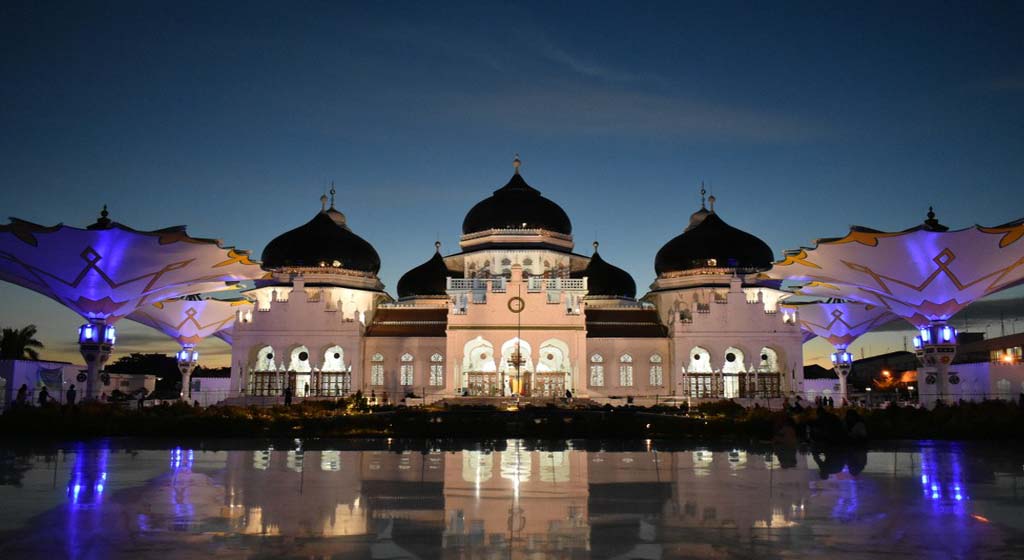
12 Months Of Islam And Their Stories
The Islamic calendar, also known as Hijri, is based on the sighting of the moon. Every month has its own historic significance and reverence.
Also Read: Prayers In The Holy Quran For Muslims
Muharram:
The first month in the Islamic calendar, Muharram is one of the most sacred months. Even before the advent of Islam, fighting was forbidden during the month of Muharram.
Many important Islamic events took place during Muharram. Hazrat Ayub (AS) got cured of his illness, Hazrat Nuh (AS) was saved from Pharoah and Hazrat Suleiman (AS) became King during Muharram.
Most important of all, the historic sacrifice of the beloved grandson of Prophet Muhammad (PBUH), Hazrat Imam Hussain (RA) took place in this holy month.
Safar:
During the month of Safar, Hazrat Fatima (RA) the beloved daughter of Prophet Muhammad (PBUH) got married to Hazrat Ali (AS).
Prophet Muhammad refuted all the superstitions regarding Safar that it is an inauspicious month. Battle of Khyber and Battle of Abwaa took place in this holy month.
Rabi-ul-Awwal:
The first month of spring, Rabi-ul-Awwal is indeed a month full of blessings. It is because our beloved Prophet Muhammad (PBUH) was born during this month. He also departed from the world during Rabi-ul-Awwal. Muslims fought.
The battle of Safwan and Battle of Buwaat during Rabi-ul-Awwal. Prophet Muhammad’s (PBUH) daughter Hazrat Ruqayyah was born in Safar.
Prophet Muhammad (PBUH) migrated to Madinah due to the atrocities of the people of Makkah during Safar.
Rabi-us-Sani:
In the second month of spring, Rab-us-Sani witnessed two battles, namely Battle of Furu and Sariyyah Battle. Prophet Muhammad did not take part in the latter.
Jamad-al-Awwal:
It was this auspicious month in which Prophet Muhammad (PBUH) married Hazrat Khadijah (RA). She was the first woman to embrace Islam and also very dear to Prophet Muhammad (PBUH) because of her staunch support during his tough times.
However, the Prophet’s grandfather, Abdul Muttalib also passed away this month.
Jamad-as-Sani:
In the second month of summer, Jamad-us-Sani witnessed the Battle of Salaasil in 8 A.H.
Rajab:
This is one of the sacred months in Islam. Deriving its meaning from “respect”, fighting in the month of Rajab was forbidden before the advent of Islam.
It was this month during which the Prophet Muhammad (PBUH) ascended to the Heavens on the miraculous journey of Mairaaj. The battle of Tabuk also took place in Rajab.
Shabaan:
The literal meaning of Shaban is an uninterrupted increase or escalation. History tells that after summer the Arabs used to look out for water. Shabaan is one of the most auspicious months of the Islamic year. Shab-e-Baraat the night of forgiveness comes during this month.
Fasting was made obligatory during Shabaan. Kabah was made the Qibla in the same month. Prophet Muhammad (PBUH) married Hazrat Hafsa (RA) during Shabaan. The beloved grandson of Prophet Muhammad (PBUH) also took place in Shabaan.
Ramadan:
The literal meaning being derived from “intense heat”, Ramadan is a gift of Allah in which Muslims have a great chance to burn away all the previous sins. It is the most blissful month of the whole year.
Muslims wait to welcome this month all year round. Fasting is obligatory during Ramadan. Hazrat Imam Hassan (RA) was born during Ramadan. Battle of Badr and the historic conquest of Makkah took place during Ramadan.
Holy Quran was revealed as the ultimate guide for mankind during Ramadan. Laylat-ul-Qadr the night of power also comes during Ramadan.
Shawwal:
Muslims celebrate Eid-ul-Fitr on the first of Shawwal as a reward for fasting during Ramadan. Fasting for six consecutive days of Shawwal earns you a great reward as per hadith.
Battle of Uhud also took place in Shawwal. Hazrat Aisha (RA) was born in Shawwal. She also got married to Prophet Muhammad (PBUH) in Shawwal.
Ziqad:
Before the advent of Islam fighting was forbidden during Ziqad as well. Battle of Trench and Pact of Hudaibiya took place during Ziqad.
Zil Hujjah:
In the last month of the Islamic calendar, Zil Hujjah is the month of Hajj. It was the fourth month in which fighting was forbidden.
Worship is greatly rewarded in the first ten days of Zil Hijjah. Muslims from all over the world perform Hajj, which is an obligatory form of worship.
